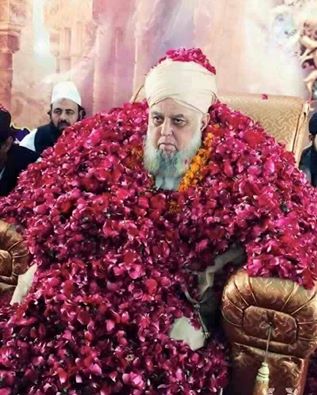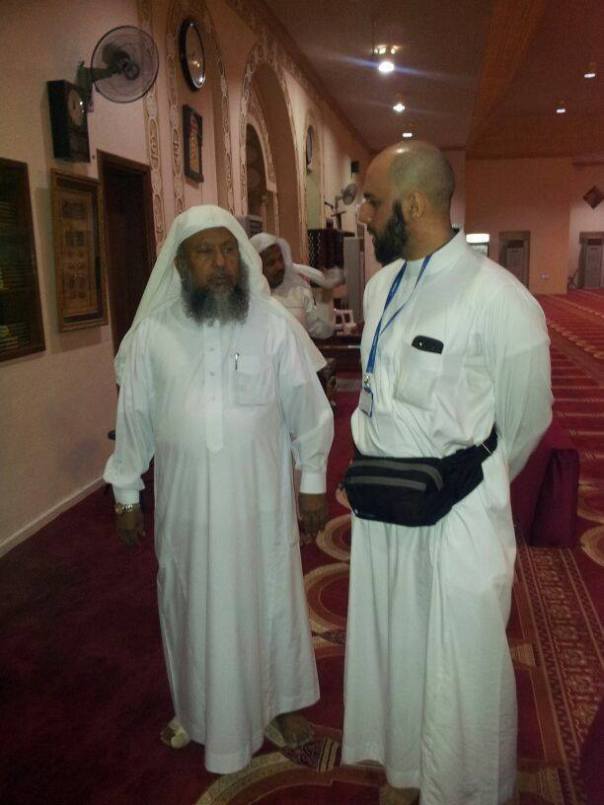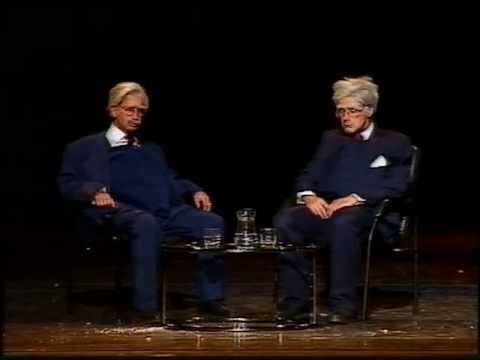It was at Fajr time this morning I received the sad news about the passing of our beloved Sheikh Muhammad Ayyoub, rahimahullahu ta’aala from his son in Madinah. He was a man whose life was in service to the Book of Allah and its teaching from his earliest days right through to his final moments before returning to his Lord. Born in Makkah in 1952, the son of a poor Burmese migrant, his family had fled oppression against Muslims in their native Burma. His childhood was difficult. The eldest of his siblings, he had to work to provide for his family (as his father was imprisoned at the time in Burma) while at the same time attending his daily hifdh classes in Makkah. At the time, there were very few developed roads and none of the tunnels through mountains we see today and so the Sheikh mentions in a rare interview that his daily journey on foot to the masjid where he studied involved the ascending and descending of two steep hills between which were wild dogs and other desert creatures. A testament to his dedication from a young age in this era of Skype classes from the comfort of our bedrooms.
As he grew older, he showed a great aptitude for the recitation of the Qur’an, impressing his teacher Sheikh Khaleelur Rahman, who held him to a rigorous high standard and who he accompanied wherever he went, practising and perfecting his recitation.
In the year 1410h (1990) the Sheikh had just been given the position of Imam in Masjid Quba. The head imam of Masjid Nabawi at the time, Sheikh Abdul Aziz As-Salih was informed of a new imam by the name of Muhammad Ayyoub in Masjid Quba who was known for his beautiful voice and excellent skill in recitation. Sheikh Abdul Aziz towards the end of Sha’ban (just before the start of Ramadan that year) summoned Muhammad Ayyoub to a gathering. Towards the end he called him to sit next to him in front of everyone and asked him to recite. The Sheikh, unsure of what exactly was happening proceeded to recite, something that was as natural to him as breathing, wowing everyone in the gathering. Sheikh Abdul Aziz who was taken aback immediately said to him (with only a few days notice before the start of Ramadan) “You will be leading taraweeh in the Masjid of the Messenger of Allah, salAllahu ‘alayhi wasallam”. Dazed and unable to believe what had just happened, he prepared himself for the great moment.
He says about his first night in the mihrab of the Prophet (salAllahu ‘alayhi wa sallam’s) masjid, “My heart was racing and my ears were buzzing. My hands were shaking uncontrollably from the greatness of where I stood and in remembrance of those who stood here before me. I sought refuge with Allah and proceeded.” He also said, “Every single time I stood at the mihrab of the Messenger of Allah, salAllahu ‘alayhi wasallam, I was filled with intense awe and a deep fear. A fear that I would not be able to do justice to this great position nor fulfil this heavy responsibility on my shoulders.”
In his first year as Imam, he led all 20 rak’ahs of taraweeh alone for the entirety of Ramadan apart from three days. A feat matched only by one other imam of the Haram, Sheikh ‘Ali Jabir in Masjid Haram (who was a close friend of his and over whom he led the janaza). His teacher Sheikh Khaleelur Rahman was away when Sheikh Muhammad Ayyoub was appointed and only found out when he heard his student on the live radio broadcast from Masjid Nabawi. He would then call him everyday, pray for him and remind him of the importance of sincerity.
The Sheikh would continue to lead taraweeh and tahajjud in the Haram till 1417 after which he was removed. He spent a few years leading at Masjid Quba and various other masaajid. He would continue on to teach tafseer at the Islamic University right up until his retirement in 2014. The Sheikh travelled extensively delivering lectures and study programs on Arabic Language, Qur’an, ‘aqeedah and fiqh in places such as Pakistan, Malaysia, India, Senegal and Turkey. Green Lane Masjid in Birmingham hosted him in the 90s.
After his retirement the Sheikh took on a handful of dedicated huffadh who he would listen to in order to give them ijaaza, daily in Masjid Nabawi right up until he passed away. Despite his ill health, he did this daily and would never fail to show up, often listening to 4 students simultaneously while stopping and correcting each one, something I witnessed personally. He would then head back to his Masjid where he lead ‘Isha and Fajr everyday.
He holds a very unique position in the world of Qur’an reciters, respected widely by Qurraa from all backgrounds and nationalities. He had a massive impact on reciters in Saudi Arabia in general, being a master of the hijazi style which by his aptitude and position at Masjid Nabawi, became very popular. Mishary Rashid in a recent show he did on biographies of modern day Qurra, said about the Sheikh, “He was the Mustafa Ismail of the Arabian Peninsula, in that he was far more influential in shaping the recitation of many reciters and imams of masaajid in that region than anyone else.” Today he is widely imitated even in the Haramain with imams such as Abdullah Johani, Bandar Baleela, Ahmad Talib Hameed and Khalid AlGhamidi in both Makkah and Madinah demonstrating being deeply influenced by him as they studied the Qur’an themselves.
He maintained a sadness that remained with him after no longer being appointed to lead at Masjid Nabawi in 1417h. The Sheikh mentioned in am interview, when asked about his wishes for the future, that he hoped he be given the opportunity to lead in the Prophet salAllahu ‘alayhi wasallam’s masjid one last time before he returns to Allah. His duas were answered as he was appointed one last time to lead taraweeh in the final Ramadan of his life in 1436h (2015) before returning to His Lord at Fajr 9th Rajab 1437h (16th April 2016).
I was blessed to meet the Sheikh a number of times including praying behind him in Ramadan 2015 and again just two weeks ago before his passing, in Masjid Nabawi as he sat and listened to his students. His final words to me were,
“The Arabic language is not difficult. Had it been as such, we would not have been able to memorise and learn the Book of Allah as it has been today from east to west.”
The Janazah will be today 16th April 2016 after Dhuhr in Masjid Nabawi. The Sheikh I believe has 13 children, 5 of them men and 8 of the women. The men are all huffadh and accomplished within their fields and a handful of the women are huffadh, some still memorising and also well studied in their respective fields.
May Allah raise him in rank in the Hereafter and allow the Book to which he dedicated his life to intercede for him in the grave and on Qiyamah. May Allah join him with the Messenger of Allah salAllahu ‘alayhi wasallam, Abu Bakr (ra), ‘Umar (ra), ‘Uthman (ra), ‘Ali (ra) and all those of the righteous whom he shared the imamate of that blessed masjid with throughout history, in the Aakhirah. Ameen.
I will post a link the comments below from where many of the Sheikh’s taraweeh recitations can be downloaded. Please pass this link on so that we can share in some sadaqah jariyah for him.




 Ustadh Kemal El Mekki exposes some of the more disgusting practices of the celebratory Sheikh circuit, not only financial but also marital impropriety in the form of excessive payments and marriage banditry.
Ustadh Kemal El Mekki exposes some of the more disgusting practices of the celebratory Sheikh circuit, not only financial but also marital impropriety in the form of excessive payments and marriage banditry.